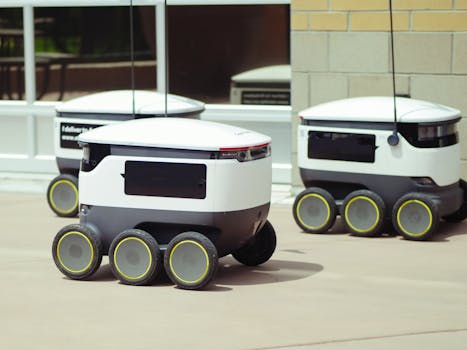
Table of Contents

- 1. The Rise of Generative AI
- 2. AI in Natural Language Processing
- 3. Machine Learning in Healthcare
- 4. Ethical AI and Responsible Practices
- 5. AI and Automation in Business
1. The Rise of Generative AI

Generative AI is transforming the landscape of artificial intelligence, enabling machines to create content ranging from text to images and music. This technology, powered by advanced machine learning algorithms, is gaining traction in various sectors. In 2024, we expect to see even more sophisticated applications of generative AI. Companies are leveraging platforms like OpenAI’s GPT and DALL-E to produce creative content that resonates with audiences on a personal level. From personalized marketing campaigns to tailored customer experiences, generative AI is set to enhance how businesses engage with consumers.
This trend is not only about content generation; it’s also reshaping the way we interact with technology. Chatbots and virtual assistants are becoming more intuitive and capable of understanding context and nuance. As a result, businesses can expect improved customer service and increased efficiency in operations. Furthermore, as generative AI becomes more accessible, small businesses are beginning to harness its potential, leveling the playing field in competitive markets.
2. AI in Natural Language Processing

Natural Language Processing (NLP) is witnessing remarkable advancements, with AI systems becoming more adept at understanding and processing human language. The integration of NLP in various applications, such as sentiment analysis, language translation, and conversational agents, is expected to accelerate in 2024. Companies are investing in NLP technologies to enhance user experiences and drive engagement.
One significant trend is the development of more context-aware systems that can understand the subtleties of human communication. This evolution will lead to more meaningful interactions between humans and machines, allowing AI to grasp emotions and intent better. Businesses leveraging these technologies will gain insights into customer behavior, enabling them to tailor their services and products more effectively.
3. Machine Learning in Healthcare

The healthcare sector is experiencing a revolution fueled by machine learning and artificial intelligence. In 2024, we anticipate significant advancements in predictive analytics, diagnostics, and personalized medicine. Machine learning algorithms are being employed to analyze vast amounts of medical data, leading to improved patient outcomes and more efficient healthcare delivery.
From early disease detection to treatment recommendation systems, the applications of machine learning in healthcare are vast. For instance, AI algorithms can identify patterns in patient data, helping healthcare professionals make informed decisions. Furthermore, the integration of AI in telemedicine is set to enhance remote patient monitoring and virtual consultations, making healthcare more accessible to underserved populations.
4. Ethical AI and Responsible Practices

As AI technologies evolve, so does the conversation around ethical AI and responsible practices. In 2024, we expect organizations to prioritize transparency, fairness, and accountability in their AI initiatives. With growing concerns about biases in AI algorithms, companies are focusing on developing ethical guidelines and frameworks for AI deployment.
Organizations are being encouraged to conduct regular audits of their AI systems to ensure they operate without bias and respect user privacy. Additionally, there is a collective effort to educate stakeholders about the implications of AI and promote responsible innovation. As consumers become more aware of AI’s impact, businesses adopting ethical practices will likely gain a competitive edge.
5. AI and Automation in Business

The integration of AI and automation is transforming business operations across various industries. In 2024, companies are expected to leverage AI-driven automation to streamline processes, reduce costs, and enhance productivity. From supply chain management to customer service, AI technologies are being utilized to optimize workflows and improve decision-making.
Robotic process automation (RPA) is gaining traction as businesses look to automate repetitive tasks. This technology enables organizations to allocate resources more efficiently and focus on strategic initiatives. Additionally, AI-driven analytics provide valuable insights that assist in forecasting trends and making data-driven decisions. As companies embrace AI and automation, they will be better positioned to adapt to changing market dynamics and consumer demands.







